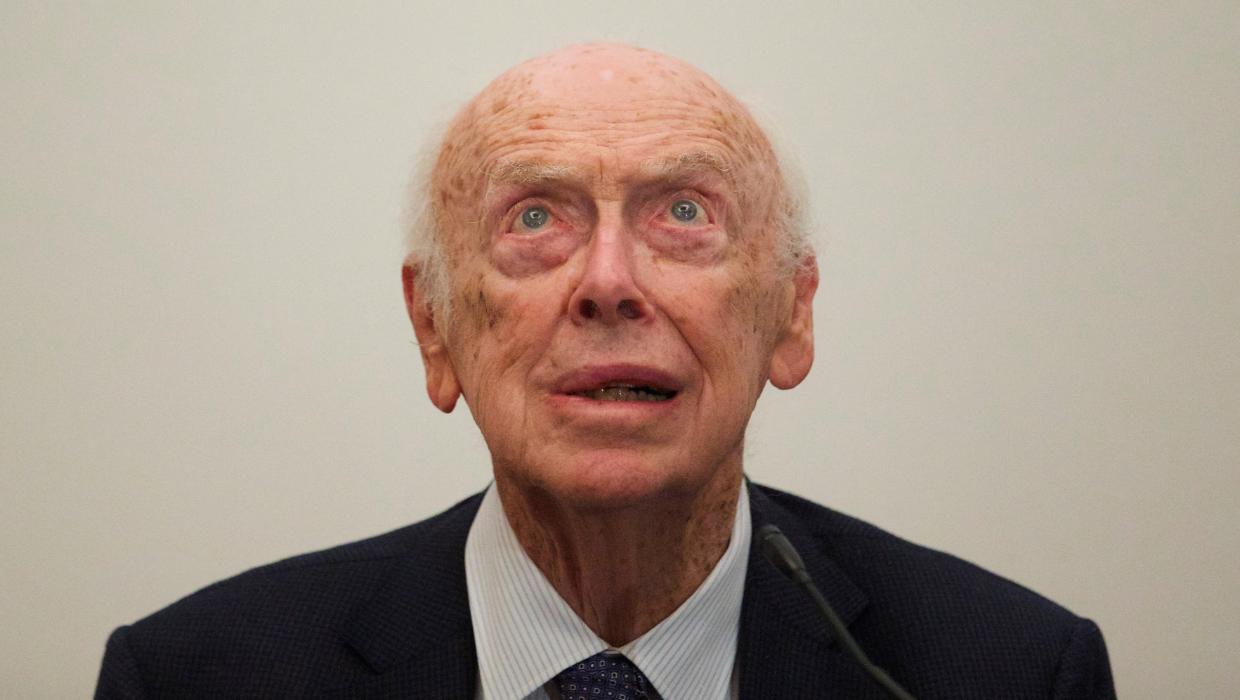Science
Renowned Scientist James Watson, Co-Discoverer of DNA, Dies at 95

James Watson, the scientist best known for co-discovering the double-helix structure of DNA, passed away at the age of 95. His death marks the end of an era for molecular biology, a field significantly shaped by his groundbreaking work in 1953 alongside Francis Crick.
Watson’s early contributions to science earned him widespread acclaim, culminating in the awarding of the Nobel Prize in Physiology or Medicine in 1962 alongside Crick and Maurice Wilkins. The trio’s discovery provided crucial insights into genetics, revolutionizing the understanding of biology and medicine.
Despite his scientific achievements, Watson’s later years were marred by controversy. He faced significant backlash and professional condemnation for making offensive remarks regarding race and intelligence. These comments led to a decline in his public standing and several institutions, including Cold Spring Harbor Laboratory, where he served as president, distancing themselves from him.
A Legacy of Discovery and Controversy
Born on April 6, 1920, in Chicago, Illinois, Watson displayed an early interest in science. After earning his PhD from the University of Chicago in 1950, he joined a research team in Cambridge, England, where he and Crick would ultimately unveil the structure of DNA. Their work not only elucidated the molecular basis of heredity but also laid the foundation for modern genetic research.
While Watson’s scientific legacy remains influential, it is intricately tied to his controversial public statements. His views on race, which he maintained despite widespread criticism, led to his resignation from several honorary positions. In 2019, he was stripped of his honorary titles at Cold Spring Harbor Laboratory, a notable shift from his earlier revered status.
Reflections on a Complex Figure
Watson’s passing leaves a complicated legacy. As a pioneer in molecular biology, his contributions to the field cannot be understated. Yet, his later remarks serve as a reminder of the complexities that often accompany public figures in science. The scientific community continues to grapple with the implications of his views and the dichotomy between his achievements and personal beliefs.
In recent years, discussions about Watson’s legacy have sparked broader conversations about ethics in science and the responsibility of scientists to engage with their work thoughtfully. As the world reflects on Watson’s life, it underscores the importance of critical discourse in the scientific community and the impact of a scientist’s words beyond the laboratory.
Watson’s death represents not only the loss of a significant scientific mind but also a moment for reflection on the evolving nature of scientific inquiry and public accountability.
-

 World3 months ago
World3 months agoTest Your Knowledge: Take the Herald’s Afternoon Quiz Today
-

 Sports3 months ago
Sports3 months agoPM Faces Backlash from Fans During Netball Trophy Ceremony
-

 Lifestyle3 months ago
Lifestyle3 months agoDunedin Designers Win Top Award at Hokonui Fashion Event
-

 Sports3 months ago
Sports3 months agoLiam Lawson Launches New Era for Racing Bulls with Strong Start
-

 Lifestyle3 months ago
Lifestyle3 months agoDisney Fan Reveals Dress Code Tips for Park Visitors
-

 World4 months ago
World4 months agoCoalition Forms to Preserve Māori Wards in Hawke’s Bay
-

 Health3 months ago
Health3 months agoWalking Faster Offers Major Health Benefits for Older Adults
-

 Politics3 months ago
Politics3 months agoScots Rally with Humor and Music to Protest Trump’s Visit
-

 Top Stories4 months ago
Top Stories4 months agoUK and India Finalize Trade Deal to Boost Economic Ties
-

 Entertainment4 months ago
Entertainment4 months agoExperience the Excitement of ‘Chief of War’ in Oʻahu
-

 World4 months ago
World4 months agoHuntly Begins Water Pipe Flushing to Resolve Brown Water Issue
-

 Science4 months ago
Science4 months agoNew Interactive Map Reveals Wairarapa Valley’s Geological Secrets









